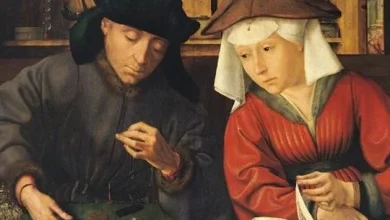Easter: origins and meaning

Celebrated between March 22 and April 25 each year, Easter has become a very popular holiday around the world. If for children, it is synonymous with chocolates, rabbits and egg hunts, for Jews and Christians, the symbolism of this holiday is much more important. Back to the origin of the Easter festivities!
Easter, an originally Jewish holiday
Biblical Hebrew pesaḥ verb drift pasaḣ which means “pass ahead, spare”. The original Jewish Passover commemorates the exodus from Egypt and the regained freedom of the Jewish people. God, as he had promised to Moses, freed the enslaved Jews by taking them across the Red Sea. The first night of the jewish passover, during a meal, each family relives what their ancestors experienced.
We divide a loaf in two by saying: “This is the bread that our ancestors ate in Egypt. Whoever is hungry, let him come and eat, and celebrate the Passover with us…“. Four cups of wine are also taken during the meal, in order to celebrate this liberation.
Easter among Christians
In the Gospels now we read that the crucifixion of jesus took place during the preparation for the Jewish holiday of Passover. Indeed, on the Thursday evening just before his arrest, Jesus also shared bread and wine with his apostles. Subsequently, he was arrested, tried, sentenced to death and crucified on Friday.
Comes Saturday and finally Sunday, the first day of the week according to the Jewish calendar, when our Lord “passed” from death to life and rose again! From then on, Christians decided to celebrate Easter in order to commemorate not the exodus of the Jewish people from Egypt, but the Passion of Christ and above all his resurrection!
Easter, an equally pagan tradition
Easter is not just a Jewish or Christian holiday. It also symbolized in some pagan traditions, the arrival of spring. It celebrated the rebirth and the return of light after the long winter months, hence the choice of the symbols of the eggs and the rabbit.
The egg then embodied germination, the renewal that occurs at the beginning of spring. As for the rabbit, since Antiquity it has represented fertility or fecundity. Thus, both have over the centuries been taken over for today, to be made of sugar or chocolate, and to satisfy the greediness of small (and big) children!




